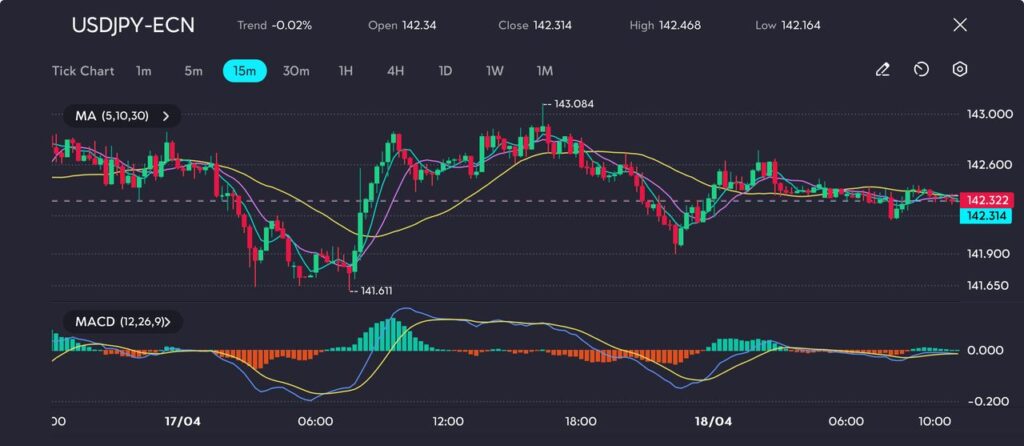
The Japanese yen has recently drawn strong attention from traders as global uncertainty, shifting interest rate policies, and fresh inflation data keep influencing its movements. With the Bank of Japan set to meet soon, markets are closely watching for signals on the central bank’s next steps. Meanwhile, the yen continues to reflect broader concerns about economic stability and trade dynamics, making it a key indicator for risk sentiment across the region.
The Japanese yen held firm on Friday, hovering near a seven-month high at approximately 142.30 per US dollar, as traders digested March inflation data and looked ahead to the upcoming Bank of Japan (BOJ) policy meeting.
The USD/JPY pair ended the session at 142.314, recording a slight decline as market sentiment steadied following recent macroeconomic updates.
Headline inflation eased to 3.6%, its lowest in four months, largely due to base effects from energy prices.
However, core inflation, which excludes volatile food costs, remained stable at 3.2%, matching expectations.
This persistence in underlying inflation allows the BOJ to maintain a cautious stance, especially as consumer prices continue to exceed the central bank’s 2% target.
Attention now turns to next week’s BOJ interest rate decision, where policymakers are widely anticipated to leave the benchmark rate at 0.5%.
This follows the BOJ’s recent departure from negative interest rates. However, the bank may revise its economic growth forecasts lower, as concerns grow over potential US tariffs and subdued global demand—factors that could weigh on Japan’s export-reliant economy.
In response to renewed scrutiny of Japan’s currency policy—sparked by comments from former US President Donald Trump—Finance Minister Shunichi Kato defended Japan’s stance, stating that the government is “not manipulating the currency”.
On the 15-minute chart, USD/JPY is showing signs of consolidation after sharp intraday volatility. The pair dropped to a low of 141.611, rallied to a high of 143.084, and then settled around 142.30, reflecting indecision among traders as they weigh yield differentials and broader risk sentiment.

The MACD histogram indicates that bullish momentum is fading, flattening near the zero line. Both the MACD and signal lines are converging—suggesting a potential continuation of the range-bound movement in the short term.
Price action is also aligned closely with the 5, 10, and 30-period moving averages, further supporting a neutral technical outlook unless there’s a clear breakout above 143.08 or a breakdown below 141.60.
With the BOJ policy outlook evolving and global trade uncertainties rising, the yen is likely to remain volatile, acting both as a safe-haven currency and a gauge of monetary policy direction in the weeks ahead.
Click here to open account and start trading.